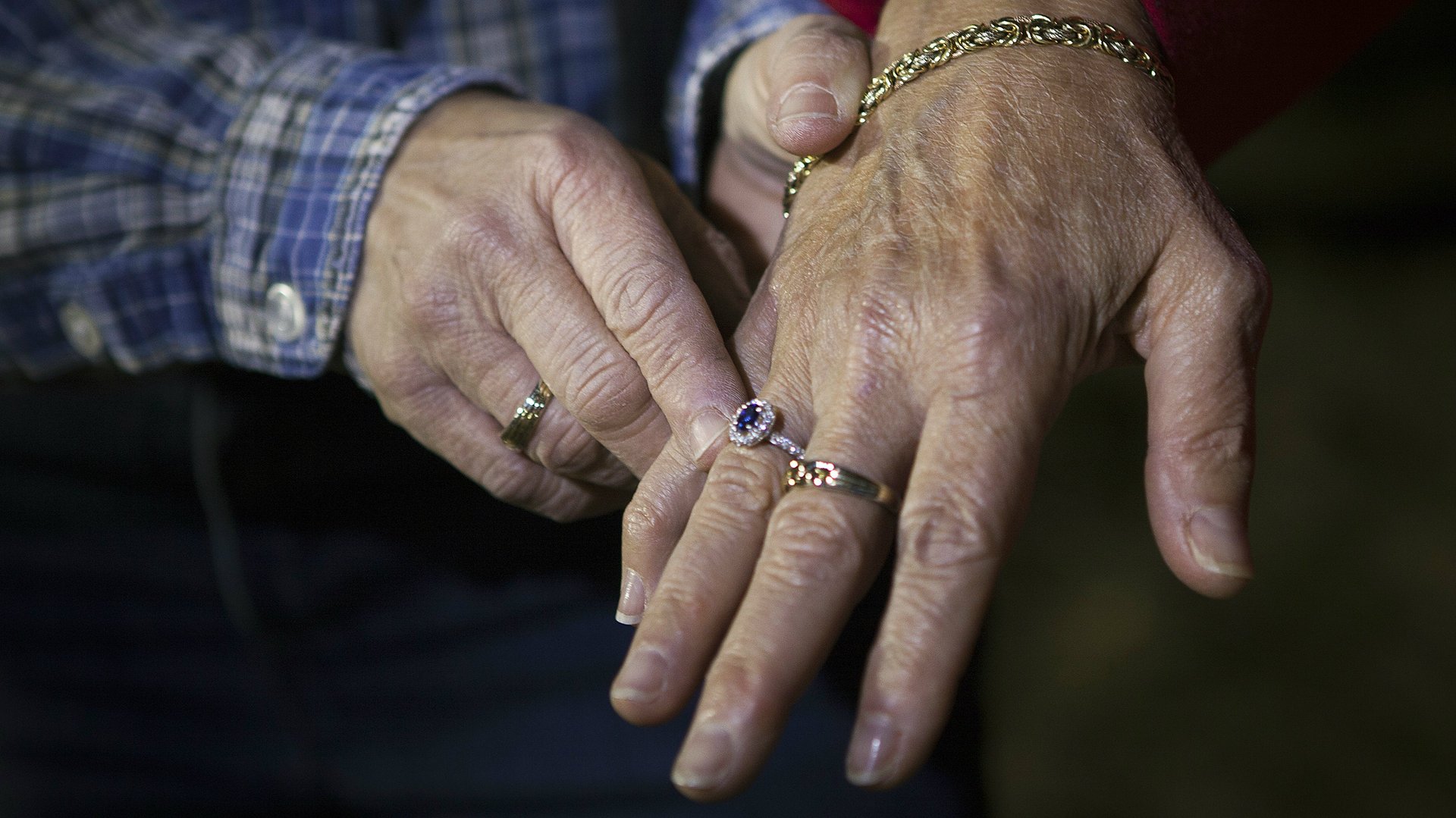Research shows being married helps cancer patients live longer
Marriage is hard work, but when it comes to facing cancer, it can help you live longer, a pair of studies examining nearly 800,000 cancer patients show.


Marriage is hard work, but when it comes to facing cancer, it can help you live longer, a pair of studies examining nearly 800,000 cancer patients show.
Using a diverse group of California cancer patients, the researchers at looked two things: mortality rates among couples and singletons across different races, ethnicities, and across socioeconomic groups.
They found unmarried white men (not of Hispanic decent) were 24% more likely to die of cancer than married men, and single women were 17% percent more likely to die than their married counterparts.
The study, published in the journal Cancer, is not the first to link marriage to better survival rates. A 2010 meta-analysis showed being married was associated with a 12% decrease in relative mortality risk; another study showed that unmarried cardiac surgery patients were more likely to have died or developed complications after the surgery than those who were wed.
“For cancer and for overall health and longevity, married people do better. Period. This association is real,” said María Elena Martínez, the lead researcher on the study about race and ethnicity.
The study also found that race, ethnicity and place of birth matter: unmarried Asian Pacific Islander (those of Japanese, Chinese and Indian descent) men born in the US had a 21% higher risk of dying than married men; but API men born outside the US faced only a 9% increase in mortality risk. The authors posit that it could be social support diminishes after time spent in the US.
The two new studies sought to understand why being married helps improve mortality rates in cancer patients. Academics have a few potential explanations: married people have better social networks, more day-to-day support, get to the doctor earlier, and get the treatments they need more. A second possible explanation: married people are more likely to have insurance (in the US) and have more money.
Using figures for 783,167 cancer patients from the California Cancer Registry who were diagnosed between 2000 through 2009 with one of 10 cancers, the researchers compared sex, patient-level health insurance status and neighborhood-level socioeconomic status as barometers of economic resources.
Their conclusion? White men benefit the most from being married (at least when it comes to facing cancer) and socioeconomic resources don’t matter much when it comes to explaining why being hitched translates to living longer with cancer.
“We speculate that it has to do more with issues related to social support than economics,” the lead author, Martinez told the Guardian.
Marriage levels are lower today than they have been in a long time. In the United States, the proportion of adults who have never been married rose from 10% in 1960 to 23% in 2012 among men and from 8% to 17% among women, the study says. Rates vary dramatically among race: 36% of blacks, 26% of Hispanics, 19% of Asians/Pacific Islanders (APIs), and 16% of whites reported never being married in 2012.
The studies had limitations. The unmarried men could be a self-selecting group. Also, the study only takes into account marital status at the time of diagnosis. If patients divorced after that, the data would not reflect it.
Despite the limitations, the message to white, non-Hispanic men may just be that getting married is good for your health.